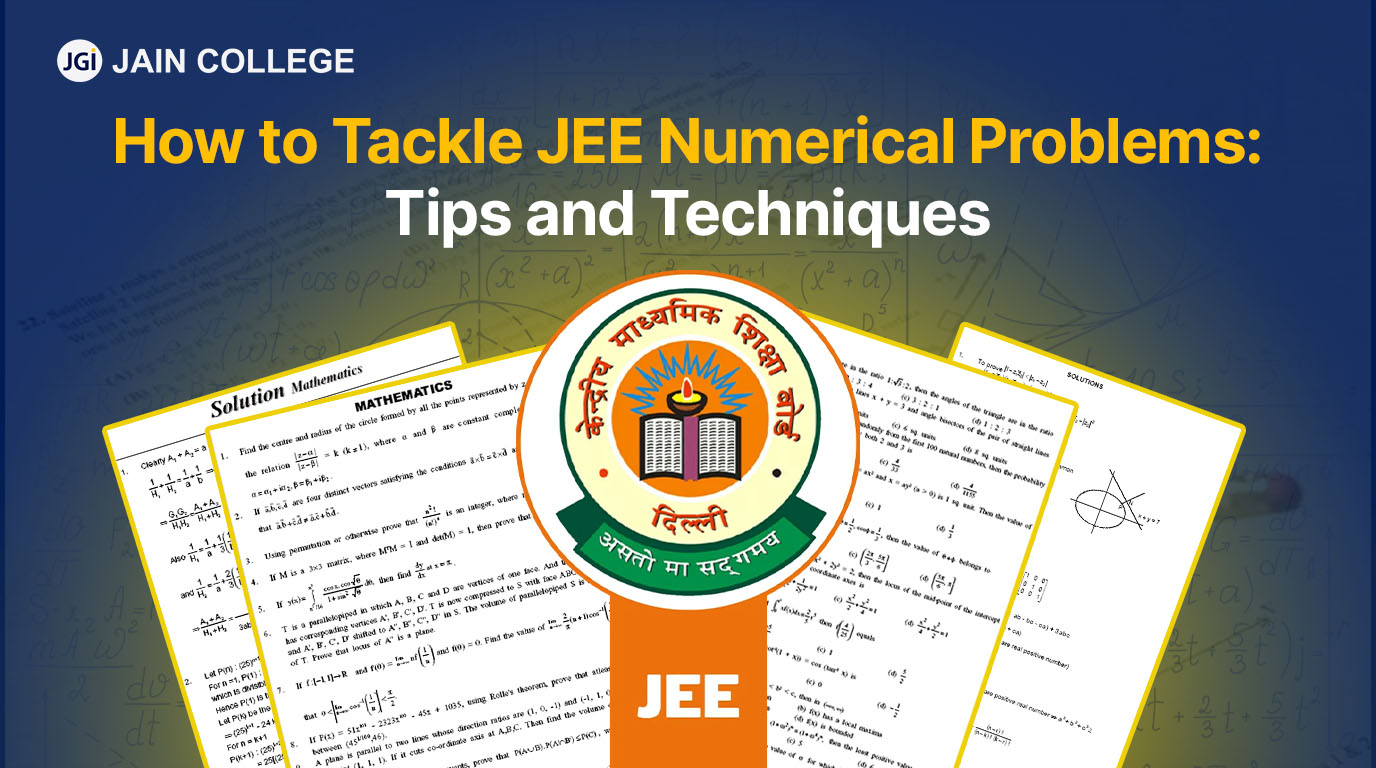
Introduction: How to Tackle JEE Numerical Problems
Master problem-solving strategies
Practice Regularly and Strategically
Learn Shortcuts and Approximations
The Joint Entrance Examination (JEE) is widely acknowledged to be one of the most competitive exams for engineering aspirants. Students aspiring to enter prestigious engineering colleges like the IITs, NITs, and government-aided colleges must appear for the JEE. With a significant portion of the paper based on numerical and problem-solving questions, students must have strong analytical and numerical reasoning skills. If you have difficulty solving numerical problems in a short timeframe, then the right techniques and consistent practice will help you master JEE numerical problems.
In this blog, we will explore practical tips and techniques to tackle JEE numerical problems with confidence and efficiency.
The JEE numerical problems are directed at testing your understanding of concepts and your ability to apply them to solve problems. Before jumping to problem-solving, ensure you have a clear understanding of the underlying theories in Physics, Chemistry, and Mathematics (PCM).
Most students who have successfully cleared JEE recommend preparing a formula sheet for quick revisions. This will help you recall concepts faster during practice and exams.
When you are attempting math problems, incorporate these practices to ensure that you interpret the questions correctly and improve your time.
Time management is critical for both your preparation and while attempting an exam. Hone your practice techniques with time as a critical factor in solving the problem. Here are some techniques that you can use:
Solving mock tests and previous years’ papers under exam-like conditions regularly will help you improve your timing, speed and accuracy.
The key to mastering numerical problems is consistent practice. Here are some tips to make your practice sessions more effective:
While conceptual understanding is a must, using smart shortcuts can save time. there are arithmetic skills that can help one-speed calculations and knowing one’s formulas and the various functions by heart will help in rapidly recalling and applying them. here are some points to remember:
Use shortcuts only when appropriate, it is easy to compromise accuracy for speed.
It is important to maintain one’s composure at the time of the examination. It is okay if you miss a question, don’t understand a problem, find a problem too complex or you are confused by a problem. Skip it and come back to it rather than letting it rattle you and affect your overall performance. In problems where there is no negative marking, if you are unsure, then don’t dwell on it, just mark the answer that you feel is the best fit. Start with subjects or sections you’re most confident in. Stay mindful of time and double-check calculations wherever possible.
JEE numerical problems may seem challenging, but with strong fundamentals, consistent practice, and strategic problem-solving techniques, you can master them. Also, it is important to demonstrate strong analytical abilities to do well in the engineering programme that you wish to apply to. Focus on building conceptual clarity, effective time management, and logical thinking. Remember, success in JEE comes with perseverance and smart preparation.

JAIN PU College, a part of the renowned JGI Group, is committed to empowering students with quality education.
Beyond academics, the college ensures its online content reflects the same standard of excellence. Every blog and article is meticulously vetted and proofread by subject matter experts to ensure accuracy, relevance, and clarity. From insightful educational topics to engaging discussions, JAIN PU College's content is crafted to inform, inspire, and add value to its readers, reflecting the institution's commitment to intellectual growth and innovation.
View all Blogs